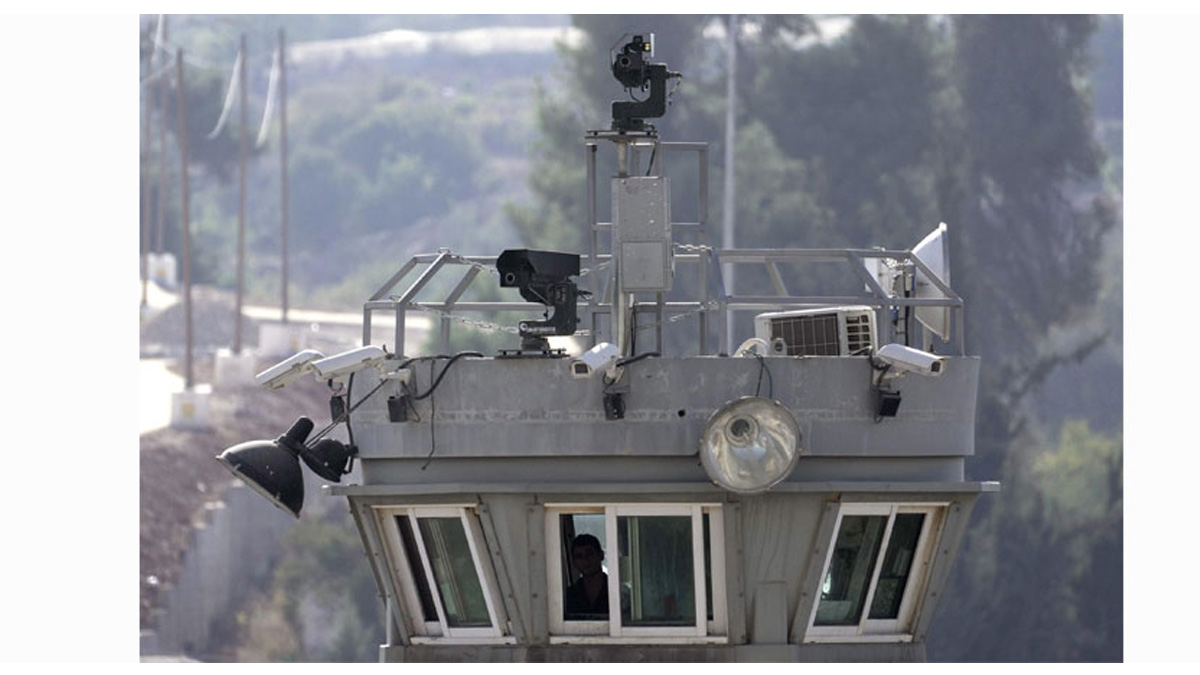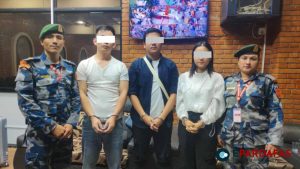
Israel deploys remote-controlled robotic guns in West Bank

Al-Aroub Refugee Camp, West Bank, Nov. 17: In two volatile spots in the occupied West Bank, Israel has installed robotic weapons that can fire tear gas, stun grenades, and sponge-tipped bullets at Palestinian protesters.
The weapons, perched over a crowded Palestinian refugee camp and in a flashpoint West Bank city, use artificial intelligence to track targets. Israel says the technology saves lives — both Israeli and Palestinian. But critics see another step toward a dystopian reality in which Israel fine-tunes its open-ended occupation of the Palestinians while keeping its soldiers out of harm’s way.
The new weapon comes at a time of heightened tensions in the occupied West Bank, where unrest has risen sharply during what has been the deadliest year since 2006.
The victory by former Prime Minister Benjamin Netanyahu’s hard-line alliance, which includes an extreme right-wing party with close ties to the settler movement, has raised concerns of more violence.
Twin turrets, each equipped with a watchful lens and a gun barrel, were recently installed atop a guard tower bristling with surveillance cameras overlooking the Al-Aroub refugee camp in the southern West Bank. When young Palestinian protesters pour into the streets hurling stones and firebombs at Israeli soldiers, the robotic weapons unleash tear gas or sponge-tipped bullets on them, witnesses say.
About a month ago, the military also placed the robots in the nearby city of Hebron, where soldiers often clash with stone-throwing Palestinian residents. The army declined to comment on its plans to deploy the system elsewhere in the West Bank.
Palestinian activist Issa Amro said Hebron residents fear the new weapon might be misused or hacked with no accountability in potentially lethal situations. People also resent what they say is a weapons test on civilians, he added.
There are no soldiers next to the machines. Instead, the weapons are operated by remote control. At a touch of a button, soldiers nestled inside a guard tower can fire at selected targets.
The army says the system is being tested at this stage and fires only “non-lethal” weapons used for crowd control, such as sponge-tipped bullets and tear gas. Residents of Al-Aroub say the turrets have repeatedly drenched the hillside camp in gas.
“We don’t open the window, we don’t open the door. We know not to open anything,” said shopkeeper Hussein al-Muzyeen.
Robotic weapons are increasingly in operation around the world, with militaries expanding their use of drones to carry out lethal strikes from Ukraine to Ethiopia. Remote-controlled guns like the Israeli system in the West Bank have been used by the United States in Iraq, by South Korea along the border with North Korea, and by various Syrian rebel groups.
Israel, known for its advanced military technologies, is among the world’s top producers of drones capable of launching precision-guided missiles. It has built a fence along its boundary with the Gaza Strip equipped with radar and underground and underwater sensors.
Above ground, it uses a robotic vehicle, equipped with cameras and machine guns, to patrol volatile borders. The military also tests and utilizes state-of-the-art surveillance technology such as face recognition and biometric data collection on Palestinians navigating the routines of the occupation, such as applying for Israeli travel permits.
“Israel is using technology as a means to control the civil population,” said Dror Sadot, spokeswoman for Israeli rights group B’Tselem. She said that even supposedly non-lethal weapons like sponge bullets can cause extreme pain and even be deadly.
The turrets in Al-Aroub were built by Smart Shooter, a company that makes “fire control systems” that it says “significantly increase the accuracy, lethality, and situational awareness of small arms.” The company boasts contracts with dozens of militaries around the world, including the U.S. Army.
Speaking at the company’s headquarters in Kibbutz Yagur in northern Israel, Chief Executive Michal Mor said the gun requires human selection of targets and munitions. (AP)
- Nepal’s Tapas Adhikari Honored with Global Ambassador Award 2024
- India Warns Canada of Further Strain Over Alleged Campaign Targeting Sikh Activists
- Adani Group Denies Bribery Allegations as “Baseless,” Reaffirms Commitment to Compliance
- Revenue Collection Increases by 17% in Q1 of FY 2024/25, but Misses Target












Comments